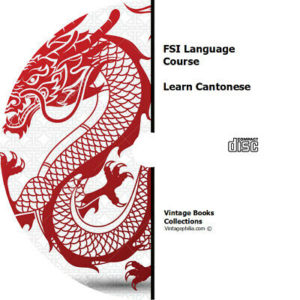As I wrote a few posts ago, I’m mostly dropping Cantonese in 2021. However I don’t want to lose my progress entirely over the course of the year, so I’ll still be reviewing my Anki deck cards and Memrise lessons, reading and watching a little Cantonese here and there, that sort of thing. Shortly before Christmas 2020, I finished up the FSI Cantonese Anki deck, so I figured I should say a few words about it here, this being my language blog in addition to anime/manga. However did I make any progress from it? I think I did, but it’s hard to tell because:
- I have no objective standard for marking my progress. I didn’t take any tests before, or try to understand something and fail etc. There’s no way to do an effective “Before and After.”
- I didn’t use the FSI deck exclusively. I also used a Cantonese vocabulary deck, the Cantonese conversations at OPLingo (fantastic resource, try it for sure), Peppa Pig in Cantonese and a bunch of other resources. After all it took months to complete the FSI deck, so it didn’t make sense to stick to one resource exclusively.
- The FSI Cantonese Anki deck is pretty basic. I’ve been studying the language long enough that most of it was old-hat in terms of vocabulary and structure.
So while I do feel I improved a bit in Cantonese listening comprehension and reading comprehension last year, I can’t give the FSI Cantonese deck any solo credit for helping me get better. I will say three things though.
 It’s a good resource for reading written Cantonese. I’ve lost track of the number of materials I’ve seen with Mandarin/Standard Chinese subtitles or text. That’s how it’s done on a native level, but it’s not helpful for beginners at all. I mean eventually you’ll have to adapt to listening in one language and reading in another, but in the early stages, a pure Cantonese resource is great.
It’s a good resource for reading written Cantonese. I’ve lost track of the number of materials I’ve seen with Mandarin/Standard Chinese subtitles or text. That’s how it’s done on a native level, but it’s not helpful for beginners at all. I mean eventually you’ll have to adapt to listening in one language and reading in another, but in the early stages, a pure Cantonese resource is great.- It’s also a good resource for understanding Cantonese spoken at close to regular speed. There’s a good mix of both men and women chatting about a variety of everyday topics without making the dialogues feel excessively “manufactured.” Though the conversations never really “go” anywhere. They’re just snippets, so if you want full conversations, check the OPLingo site I linked earlier.
- There still aren’t many Cantonese materials aimed at the intermediate-to-advanced learner. And especially not those that include both audio and an accurate text transcript. And doubly-especially not free and still available. So there’s no reason not to use this deck if you can find it.
Here is the Anki link. As I often say for Cantonese, you don’t exactly have a lot of options, so you might as well take what you can get.
In contrast, I just picked up a couple of good Korean decks because I’ve almost exhausted all of Evita’s decks and finished the Hanja deck as well. I’ve had so little to review lately that I’ve been doing more and more of the Spoonfed Chinese deck I said I was putting on hold. But that changes today. Back to learning more Korean so I can read promising series like “The Emperor Reverses Time” and “The Villainess is a Marionette” without having to deal with scanlation drama. See ya!



